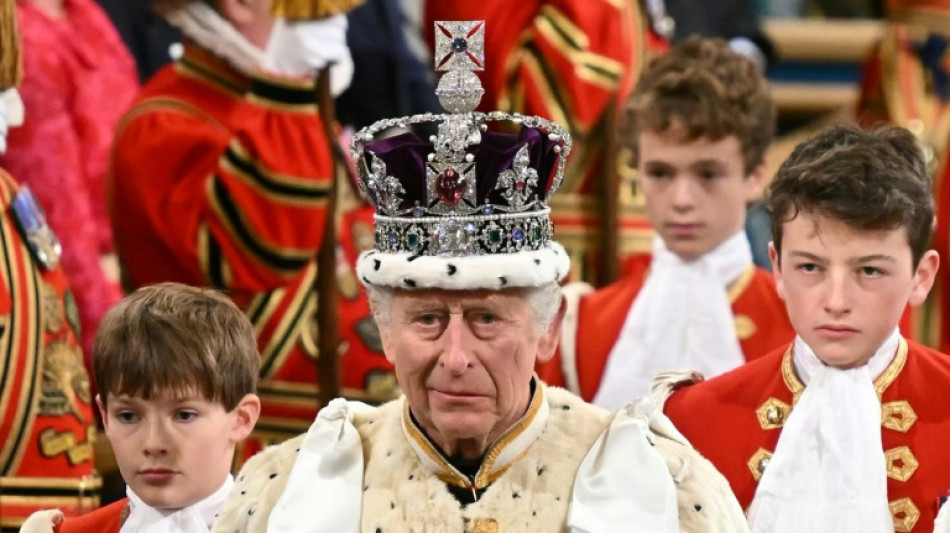

UK's King Charles III admitted to hospital for prostate surgery
Britain's King Charles III went into hospital on Friday for scheduled prostate surgery, undergoing treatment at the same private clinic where his daughter-in-law is recovering from an operation.
The 75-year-old monarch, who is also head of state in 14 countries outside the UK, was seen arriving at The London Clinic, accompanied by his wife, Queen Camilla.
Catherine Princess of Wales, whose husband Prince William is Charles's elder son and heir, has spent 11 days at the same hospital after abdominal surgery.
It is not known how long the king will spend in hospital but The Times newspaper said he was expected to stay for two days to recover.
British media said he visited Kate ahead of his own treatment.
"The king was this morning admitted to a London hospital for scheduled treatment," Buckingham Palace said.
"His Majesty would like to thank all those who have sent their good wishes over the past week and is delighted to learn that his diagnosis is having a positive impact on public health awareness."
- Awareness -
Royal officials took the unusual step last week of issuing a bulletin on the king's health, disclosing that he had an enlarged prostate but that the condition was benign.
It came soon after news that Kate, 42, had undergone successful abdominal surgery for an unspecified condition.
She was expected to spend up to two weeks recuperating, then several months away from public duties.
Charles travelled to his private Sandringham estate in eastern England on January 19 to prepare for what royal officials said would be a "corrective procedure", before returning to London on Thursday.
He was told he had the condition, which is common in men aged over 50 and affects urination, after experiencing symptoms and having a check-up.
He wanted to share his diagnosis publicly to encourage other men who may be experiencing symptoms to see their doctor.
The king's announcement has seen a surge in internet searches for the term "enlarged prostate" on the state-run National Health Service (NHS) website.
An enlarged prostate, symptoms of which include a frequent need to urinate and difficulty emptying the bladder, is not normally considered a serious condition or a risk indicator for prostate cancer.
The charity Prostate Cancer UK said it had seen a more than 100-percent increase in people using its online risk checker on Thursday compared with Wednesday.
Ian Eardley, a consultant urological surgeon and national clinical director for NHS England, said the condition was "to some extent... an inevitable part of ageing for just about all men".
But the publicity was welcome, he added.
"The nature of these things (is) if it becomes public knowledge it will lead to more men seeking help. That's a good thing."
- Transparency -
Charles has largely enjoyed good health throughout his life, barring sporting injuries from polo and skiing, and two bouts of Covid in 2020 and 2022.
The transparency about his surgery is a clear break with the past.
Charles's mother, Queen Elizabeth II, suffered visibly declining health from October 2021 until her death in September 2022.
Her withdrawal was based on what officials said were "episodic mobility problems" that affected her walking and standing, leading her to use a stick and even a motorised buggy at public events.
Officially, her death at 96 was recorded as old age.
But there have been claims from a trusted royal biographer that she had bone marrow cancer.
The late queen's father, King George VI, was a heavy smoker and had one lung removed in September, 1951, although the full extent of his condition was not made public at the time.
He never made a full recovery and died in February, 1952. It was later revealed he had lung cancer.
I.Barone--IM




